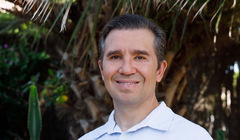
In two short years, international PR consultancy firm Drofa Comms has reached the top three British finance and fintech PR services providers and has been recognised as one of the fastest-growing businesses in Britain. Valentina Drofa, the co-founder and CEO of Drofa Comms, shared her success story with Kommersant UK. She also told us about her approach to business, ambitions and plans.
You’ve reached the top three British companies in your field. Is this the limit of your ambition? What goals would you like to achieve in London?
Although everyone thinks it sounds great, including our clients, our staff and myself, this is just one more step we've managed to take in Britain on the ziggurat of professional achievement. What's more, the London office has managed to reach this top position in only two years. Despite the agency having opened its doors back in 2011 and having acquired hundreds of companies as clients over 13 years, the British branch only opened in 2021. As for our plans and ambitions, well, getting onto the local market was not straightforward, as we had to explain who we were, what projects we'd already done and what we were capable of. Now the local financial community knows us, as we serve the major banks, brokerages and fintech projects.
As for our aims, our British office is currently working with 30 clients who are paying £10,000-£28,000 a month for our services. If our UK operations alone could bring us a net profit of a million pounds a year, I would consider that a good result. As for short-term plans, throughout 2025, we expect to continue to hold our leading position in PR for finance and fintech and remain among Britain’s top 10 PR companies. In the next year or two, we plan to open an office in the US. In our target markets, our overall aim is wider; when people think of financial PR, we would like them to immediately think of Drofa Comms.
Why did you decide to open a business in Britain? What is the appeal of this region?
We opened a separate British branch for the convenience of the clients we had acquired here. We needed to meet with them and accompany them to functions. First, we took a close look at this market, came to London, talked to colleagues and saw the potential opportunities for our company, financial and otherwise. The rest was just formalities; preparations, discussions at the board of directors and the eventual launch onto the UK market. Yes, it was tough at times in the early days, but I'm sure it was worth it.
The London office is now our company's headquarters. London is a logical location for our base, not just because it's a world financial capital, where 2,000 financial companies are registered, but also because London is a sizable and competitive market and we're planning to become leaders in PR across the world's financial centres. Our approach allows us to stand out professionally on the market and find valuable clients.

What makes your approach stand out?
Most PR agencies in Britain and elsewhere are selling a process. They may, for instance, offer clients access to journalists, or the opportunity to pitch their news to the media. So they’re not providing companies with the chance to publish their own material in the media or have their representatives invited to give talks at events. Nor are they helping to raise companies’ recognition or media coverage and so on. In a month, or even a whole quarter, they may not publish any material at all. That's not our approach. With us, the process is already integrated out of the box. What we're selling is results. In other words, rather than simply selling the time of our PR experts, we tell the client clearly the type and quantity of material we can create for them and what benefit it will bring to their business. It goes without saying we prepare a promotion strategy, a media plan and the necessary material for the company and its spokespeople, but all of this is directed at getting our clients mentioned in the media, boosting their popularity and making their representatives better known by people in the sector. We do this while making the process manageable, so it works towards the aims and in the interests of the company, giving measurable results. We get deep down into the nitty-gritty of the client’s business and their product, allowing their company to grow on sound foundations thanks to our integral smart communications policy.
If companies can see the difference between process and results, why haven’t they all become your clients? Wouldn't the choice seem obvious?
Actually, not all of them are ready for it. British companies may want to use the approach we are offering, but not everyone can work with it, as it requires the close involvement of the client's company in our work, active engagement with their representatives, who themselves must make a concerted effort, high flexibility and the ability to switch the company’s gears swiftly, give direct feedback in real-time and essentially be able to speak clearly without any ‘fluff’. Often, our tasks include strengthening the company’s communication process and raising the overall openness and transparency of the business, but these are significant changes that not everyone is willing to put into effect. For companies used to publishing news on their site once a quarter or sending out press releases once every six months, vigorous dynamism doesn’t always seem an attractive strategy. But as we value our clients’ money, we just can't take a low-energy approach. So we warn them about this at our first meeting, explain and give demonstrations of our work during media training.
Who are your clients? In what countries do you currently work?
We have hundreds of client companies and a wide-ranging geography; the CIS, Europe (Germany, France and Switzerland) and Arabic countries, such as the UAE. We work with payment systems, fintech companies, hedge funds and banks. For instance, in London, I’m currently working with companies which have been our clients on the Moscow stock exchange and at various brokerage houses since 2013. They come to us with new projects because they know our standards, experience and the capabilities of the agency. Many come because we’ve been recommended to them, as the grapevine works very effectively in our sector; this is quite a narrowly specialised and stable market where the pool of specialists rarely changes, as only a few new recruits fill their ranks each year.
You’ve been working in the financial sector for around 20 years. In 2007, you opened an educational platform and worked successfully in business e-learning. What gave you the impetus to start working for yourself?
‘Laziness is the locomotive of progress’. Maybe this maxim best describes the story of how the educational platform came about. In 2007, as a newly qualified economics graduate, I received the offer of a position at a brokerage. I had only intended to spend a few months working there, but I ended up tying my whole life to the world of finance. I quickly realised I didn’t just want to open accounts and besides, people were often coming to me with various questions concerning trading shares, the stock market and so on. To avoid having to repeat myself, I suggested to the company management that I set up a training course. They agreed. It was very tough at the start, as, first of all, virtually no information was freely available and secondly, I was learning it for the first time myself. It was a challenge, although I only understood this later. For example, in order to organise a seminar entitled ‘Financial Markets; Great Opportunities, Great Risks’ which I sometimes gave my colleagues, I had to download a trading terminal, start to test it by making transactions, learn how to conduct technical analysis by taking a look at the tools available to do this, and establish the level of resistance and support. I conducted seminars regularly, practically every day. I ended up being appointed head of the education centre created after my seminars began, but as the company grew, many new offices appeared all over the country, and the number of questions increased in direct proportion to the number of staff. So, the next step was to create the site; an online educational platform. After its launch, I left the company and opened my own online resource, broadening the target audience, to allow the wider public to learn about the skills I had acquired. My financial training platform was a success; it received first prize in the Young Millionaires competition and was also named the best online educational resource in the financial sphere.

So when did you make the move from educational products to a PR agency?
Opening the agency was a logical progression for the training business as the companies I was working with wanted more than the platform could give. So, I decided to sell it and concentrate on promotion and PR. Clients who originally used the platform have long since made the transition to PR accompaniment. This means I didn’t have to look for startup capital, attract investment or develop a new business; everything happens quite organically. Now there’s no stopping it. The skills we’ve built up allow us to react quickly to any change, make decisions, and assess risks, profit, turnover and viability for clients. This has all come about over the last few years.
Why did you choose such a narrow specialisation as PR? Probably the companies that come to you require the full spectrum of marketing services
Initially, we tried to diversify our services with SMM, media advertising and so on, as we planned to move towards being more comprehensive. But we soon realised that we were primarily communication specialists and that was what we wanted to focus on. We don’t want to search for contractors and be responsible for their work. So we decided not to lose focus and to concentrate solely on PR; Personal Communications for company founders, Corporate PR, Anti-Crisis Communication and Content, as we’re great at doing those things.
Looking back, what mistakes could you have avoided?
I would have hired a coach earlier. That stage of our company’s progression was four years ago and I believe it was the best thing I have done for my business career. After that, there was a sea change in the life of our company. The business coach asked the right questions at the right time, which helped us to clarify our motivation and restructure many things (but to benefit from coaching, you have to be mentally prepared first). There have been different stages in the life of our company, we’ve worked in various conditions and with different clients, and now, I think better times have come because we have finally set out the right values for ourselves and grown towards them.
How are these values important for the company?
Values are an anchor. They can guide our actions so we make sound decisions. We have four; proactiveness, development, honesty and respect. One of the most important is honesty. We strive to be honest with clients, agents and colleagues. It is honesty that underpins our unique approach which, I hope, will allow us to change the financial PR market in Britain and beyond.
Contacts:
Email: [email protected]
Telephone: +44 7778 941438
Telegram: @queenmotheroffinanc






